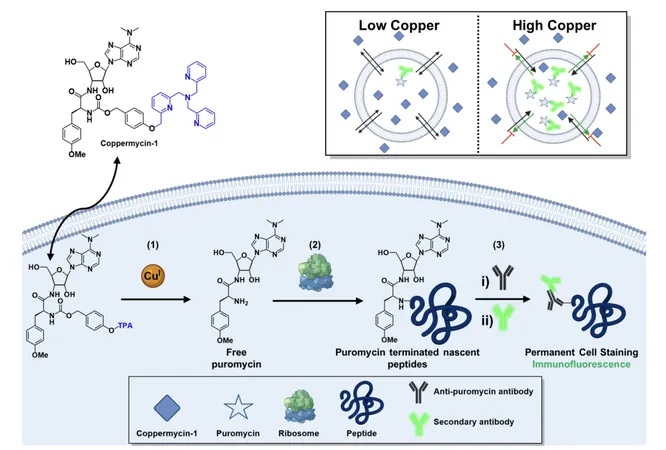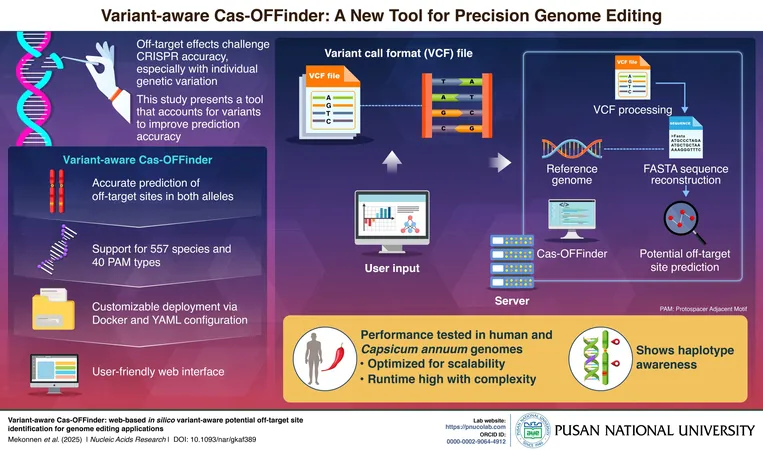
Revolutionary Copper-Detection Tool Unveils Promising New Path for Lung Cancer Treatment!
2025-01-22
Author: Sarah
In a groundbreaking study published earlier this week in the Proceedings of the National Academy of Sciences, researchers at Princeton University's Chang Lab have made significant strides in understanding the role of copper in lung cancer. Building on last year's exploration of iron's impact on human biology, this new research focuses on how copper may influence cell growth in lung cancer cells.
The lab has developed an innovative sensing probe capable of detecting copper levels in human cells. Their research suggests that copper could play a crucial role in regulating cell growth and presents a potential new treatment approach through copper chelation therapy. This strategy appears particularly effective in certain lung cancers characterized by an increased transcription factor linked to oxidative stress, alongside reduced levels of bioavailable copper in cancer cells.
Co-lead author Aidan Pezacki stated, "Copper levels in cells are known to cause oxidative stress. Our findings indicate that cancers requiring high copper levels also exhibit increased oxidative stress, linking the necessity for copper with the potential strategy of targeting this vulnerability."
The collaboration with Marco Messina from the University of Delaware and Gina DeNicola from the H. Lee Moffitt Cancer Center has fortified their research. The team examined various human tumor cell lines to identify which cells exhibited elevated copper levels, revealing that specific lung cancer types possess a dual vulnerability due to their heightened reliance on copper and proteins like nuclear factor-erythroid 2-related factor 2 (NRF2), which combats oxidative stress.
Interestingly, cancer cells with higher NRF2 levels demonstrated increased sensitivity to copper depletion when treated with a chelation agent. Pezacki noted, "Cells with elevated NRF2 showed greater cell death rates following treatment with the copper chelator, suggesting that the resulting copper deficiency overwhelms the cells' need for this essential nutrient."
While this research offers promising insights into copper's role in cancer, Chang emphasized that these results have yet to be tested in human tissue. He described the study as a proof-of-concept for identifying metal vulnerabilities in lung cancer, stating, "This research contributes to our understanding of how diet, environment, and lifestyle choices influence disease states."
The implications are enormous: If copper chelation therapy proves effective in human subjects, it could transform treatment protocols for lung cancer and potentially other types of cancer where copper imbalances are a contributing factor.
This revolutionary discovery raises the question: Could a simple element like copper hold the key to unlocking new cancer therapies? Stay tuned as we follow this promising avenue of research that may reshape our approach to fighting lung cancer!





 Brasil (PT)
Brasil (PT)
 Canada (EN)
Canada (EN)
 Chile (ES)
Chile (ES)
 Česko (CS)
Česko (CS)
 대한민국 (KO)
대한민국 (KO)
 España (ES)
España (ES)
 France (FR)
France (FR)
 Hong Kong (EN)
Hong Kong (EN)
 Italia (IT)
Italia (IT)
 日本 (JA)
日本 (JA)
 Magyarország (HU)
Magyarország (HU)
 Norge (NO)
Norge (NO)
 Polska (PL)
Polska (PL)
 Schweiz (DE)
Schweiz (DE)
 Singapore (EN)
Singapore (EN)
 Sverige (SV)
Sverige (SV)
 Suomi (FI)
Suomi (FI)
 Türkiye (TR)
Türkiye (TR)
 الإمارات العربية المتحدة (AR)
الإمارات العربية المتحدة (AR)